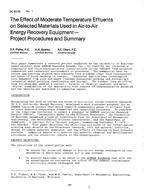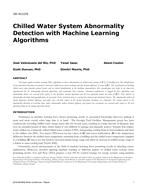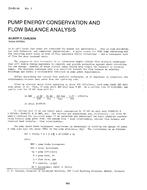Recent laboratory and field experiments performed and initiated by the International Centre for Indoor Environment and Energy, Department of Mechanical Engineering, Technical University of Denmark show that improving indoor air quality improves the performance of office work by adults and schoolwork by children. In laboratory studies, recruited subjects performed office work in offices where the air quality was improved by reducing the pollution load and increasing the outdoor air supply rate. For each 10% reduction in percentage dissatisfied with the air quality, a 1% increase in performance of office work was observed. In field studies, the talk-time of operators was registered in call-centres where the air quality was improved by increasing the outdoor air supply rate or replacing a used ventilation particle filter with a new one. These interventions improved work performance by 5% to 10%. The performance of schoolwork by children aged 10-12 years was measured during week-long periods with improved classroom air quality achieved by increasing outdoor air supply rates. The results suggest that doubling the ventilation rate would improve school performance by 8-14%. The mechanisms for the observed effects are not known but laboratory experiments suggest that poor air quality causes changes in the breathing pattern (shallow breathing) and thus may induce physiological effects, including symptoms similar to Sick Building Syndrome, or causes people to reduce their work rate. Life-cycle cost analysis showed that the air quality upgrades increase energy and maintenance costs, first costs of a HVAC system and building construction costs, but at the same time they are highly cost-effective: benefits of improved performance of office work are many times higher than the increased costs, pay-back times are <2 years and the annual rates of return are several times higher than the minimum interest rate. These results constitute a strong incentive for providing indoor air of a quality that is better than the minimum levels required by present standards. To achieve this goal new energy-efficient and sustainable technologies to improve indoor air quality are required.
IAQ 2007 Conference held in Baltimore, Maryland, October 14-17, 2007
Units: Dual
Citation: IAQ Conference: IAQ 2007: Healthy and Sustainable Buildings
Product Details
- Published:
- 2008
- Number of Pages:
- 10
- File Size:
- 1 file , 310 KB
- Product Code(s):
- D-IAQ2007-15


